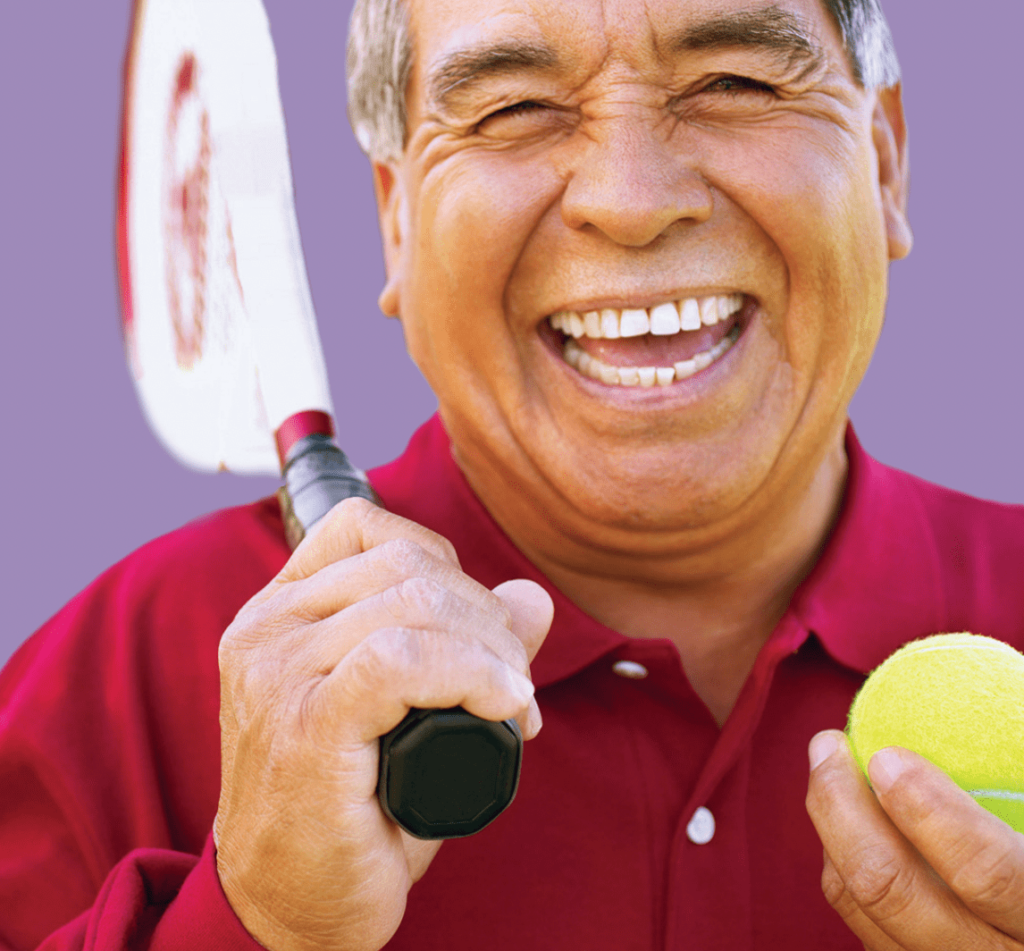The aging population in the United States is growing. Older patients should know that maintaining good oral health is vital to having a healthy smile and optimal overall health. According to the Centers for Disease Control and Prevention (CDC), oral pain, difficulty eating (due to missing teeth, ill-fitting dentures, cavities and gum disease) and tooth loss are all signs of oral health problems in aging adults. Your dentist can help prevent and detect these oral health problems.

What oral conditions am I more prone to as I age?
• Dental caries. Dental caries (tooth decay) is one of the main causes of tooth loss, or edentulism. About 23 million people are completely edentulous (toothless), according to the American College of Prosthodontists.
• Periodontal disease. Periodontal disease (gum disease) is a chronic bacterial infection that affects the gums and bone supporting your teeth. According to CDC, in 2012, one out of every two American adults age 30 and older have had gum disease, which can lead to tooth loss.
• Xerostomia (dry mouth). When the salivary glands do not work properly, the amount of saliva in the mouth decreases, resulting in dry mouth, which can lead to decay. Prescription and over-the-counter medications are the most common cause of dry mouth. Dry mouth can make it difficult to eat, swallow, taste and speak.
• Oral cancer. Oral cancer typically is painless in its early stages but can become painful as it spreads. Go to your dentist immediately if you observe any of the following: changes in the way your teeth fit together; oral sores that bleed easily or don’t heal; lumps, thickening, rough spots or crusty or eroded areas in your mouth; or difficulty swallowing, chewing, speaking, or moving your jaw or tongue. Your dentist should perform a head and neck exam to screen for oral cancer during your routine checkups.
How can I maintain my oral health as I age?
• Avoid tobacco, which is a risk factor for periodontal disease and oral cancer, and limit alcohol, which is also an oral cancer risk factor.
• Drink fluoridated water and use fluoride toothpaste to protect against decay.
• Practice good oral hygiene. Brushing your teeth with a soft-bristled brush for two minutes twice a day, and flossing between teeth, can help remove plaque. If you wear dentures, brush them every day to remove food particles and plaque and to prevent staining. Before inserting your dentures, brush your gums, tongue and the roof of your mouth with a soft-bristled brush to stimulate tissue circulation and remove plaque.
• Visit your dentist at least twice a year. People who do not have teeth still need to visit the dentist regularly, since denture adjustments and oral cancer screenings are part of routine dental visits. Older patients who are planning to enter a nursing home should ask about on-site dental care.
What if arthritis makes brushing my teeth difficult?
If you have arthritis and brushing your teeth is painful for you, you can try securing your toothbrush to a wider object, such as a ruler, or try an electric toothbrush. Talk with your dentist for more suggestions.
© COPYRIGHT 2017 BY THE ACADEMY OF GENERAL DENTISTRY. ALL RIGHTS RESERVED.